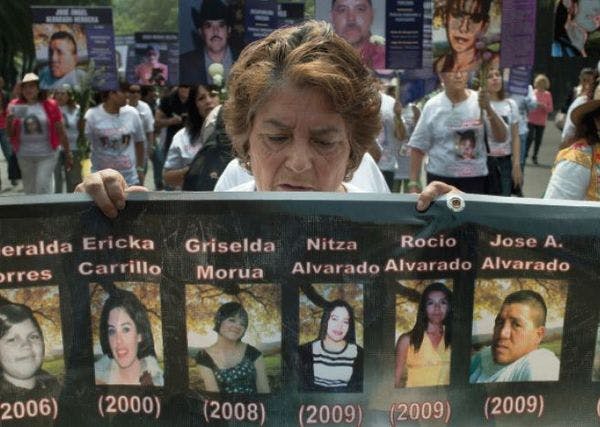Les disparus du Mexique: les coûts à long-terme d’une crise ignorée
Human Rights Watch a répertorié près de 250 «disparitions» qui ont eu lieu dans le cadre de la guerre contre la drogue. Dans plus de 140 de ces cas, les agents de l'État ont y ont participé directement, agissant parfois conjointement avec les organisations criminelles. Pour en savoir plus, en anglais, veuillez lire les informations ci-dessous.
Abonnez-vous à l'Alerte mensuelle de l'IDPC pour recevoir des informations relatives à la politique des drogues.
When Enrique Peña Nieto took office on December 1, 2012, he inherited a country reeling from an epidemic of drug violence that had taken the lives of more than 60,000 Mexicans in six years. The “war on drugs” launched by his predecessor, Felipe Calderón, had produced disastrous results. Not only had it failed to rein in the country’s powerful criminal groups, but it had led to a dramatic increase in grave human rights violations committed by the security forces sent to confront them. Rather than strengthening public security, these abuses had exacerbated a climate of violence, lawlessness, and fear.
Human Rights Watch has documented nearly 250 such “disappearances” that have occurred since 2007. In more than 140 of these cases, evidence suggests that these were enforced disappearances—meaning that state agents participated directly in the crime, or indirectly through support or acquiescence. These crimes were committed by members of every security force involved in public security operations, sometimes acting in conjunction with organized crime. In the remaining cases, we were not able to determine based on available evidence whether state actors participated in the crime, though they may have.
Keep up-to-date with drug policy developments by subscribing to the IDPC Monthly Alert.
Téléchargements
Sujets
- Crime transnational et organisé
- Droits des peuples autochtones
- Action policière
- Droits humains
- Genre
- Prévention de l'usage de drogues
- Justice pénale
- Santé et réduction des risques
- Décriminalisation, réglementation et réforme
- Développement et environnement
- Violence, action policière et sanctions
- Droits humains et justice sociale
